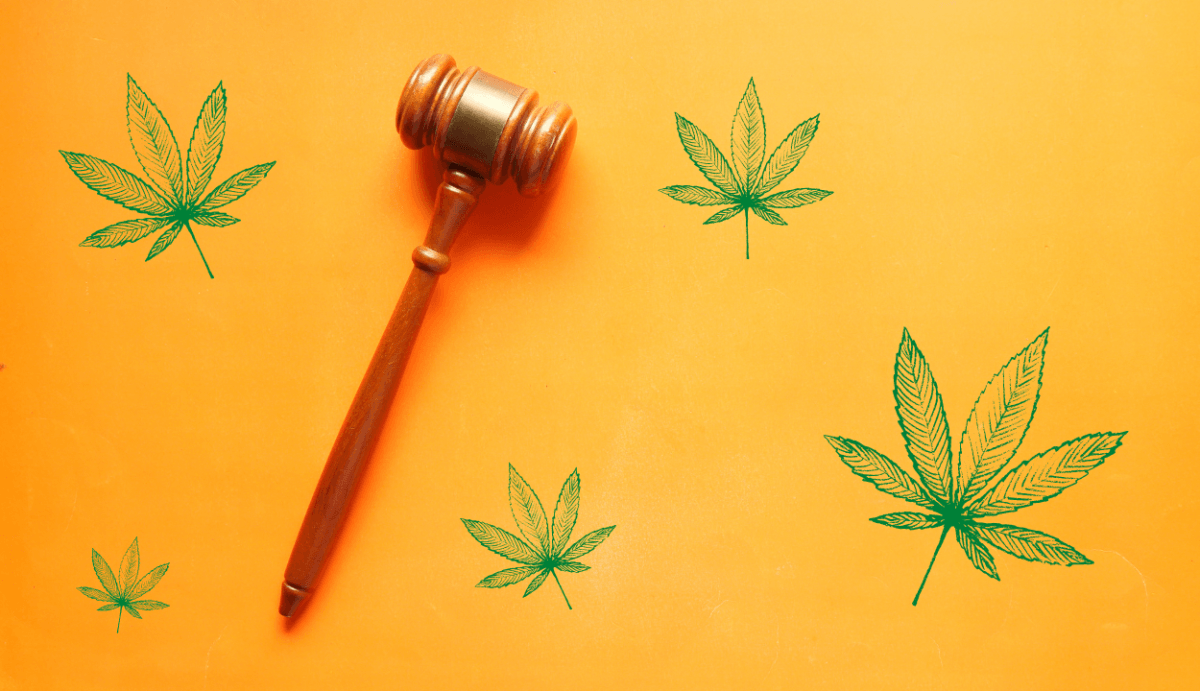Your Cart is Empty
FREE SHIPPING ON ALL ORDERS $75+
THC-O is definitely making a name for itself as the most potent THC alternative on the market, but how legal is it to buy and use? And even if it’s legal by federal law, is THC-O legal in every state?
All good questions! Here’s what you need to know about THC-O laws at the federal and state level before you buy it and try it for yourself:

The 2018 Farm Bill officially legalized hemp and its derivatives, a finalization of hemp laws that had been in the works since before the 2014 Farm Bill was passed. Aside from textiles and other products that could be made from domestically farmed hemp, most of the focus was on CBD and how it could be used therapeutically.
Soon after, manufacturers began to dig into all of the applications for hemp. After a few years of trial and error, they learned how to create hemp-derived THC products through a process called “isomerization.” Now, Delta-8, Delta-10, and THC-O products derived from hemp material are all circulating the market, legally.
But how are these hemp-derived THC isomers legal? Where do they fall in the original definition used to legalize hemp?
Well, the legal text defines hemp as “Cannabis sativa L. and any part of that plant, including the seeds thereof and all derivatives, extracts, cannabinoids, isomers, acids, salts, and salts of isomers…with no more than a 0.3 percent concentration of THC.”
Technically, hemp isomers like THC-O and Delta-8 both count as “derivatives” and “isomers,” and both contain less than 0.3% Delta-9-THC.
This is pretty clear cut as is, but a clause in Section 12619b of the 2018 Farm Bill specifically addresses tetrahydrocannabinols in hemp. The wording clearly suggests that all tetrahydrocannabinols that are derived from industrial hemp which contains less than 0.3% Delta-9-THC are specifically exempt from scheduling within the Controlled Substances Act, rendering them legal by federal law.
Some sources argue that THC products that are not directly extracted from hemp are “synthetic,” which would make them illegal regardless of hemp’s definition or legal status. Here’s why that’s not the case:
A synthetic cannabinoid is not generally made from plant material, rather it is completely synthesized from other chemicals in a lab setting. To better understand what a synthetic cannabinoid actually is, we’ll look at a popular synthetic cannabinoid that was once sold as a common street drug: K2 (also called “spice.”)
K2 is a completely man-made substance that is not derived from natural cannabis material at all. It is often sprayed on various plant materials to give the appearance of cannabis, but it actually contains no organic material–just a series of chemicals meant to imitate cannabis-derived cannabinoids.
THC-O, on the other hand, is made from hemp material. The process used to convert CBD to THC-O is called “isomerization,” and it’s been used to create cannabis products since the early 2000’s when a well-known researcher established a patent for converting CBD into Delta-8-THC.
Isomers are molecules that contain all of the same components, just arranged in a different order. CBD and Delta-8 are isomers, for instance, and the process of turning CBD into Delta-8 involves rearranging the CBD molecule. This happens when CBD is exposed to a certain acid, which is then removed in the final refinement process. Nothing else is added or taken away.
The same concept can be applied to THC-O. It’s made from Delta-8 that is made from CBD that is derived naturally from hemp. It’s not a synthetic molecule, rather a hemp isomer and legal cannabinoid.

For now, THC-O derived from hemp material is totally legal, and it has been since the hemp laws were updated in 2018. Many experts and government officials have suggested, of course, that the federal government didn’t intentionally create a legal avenue to psychoactive cannabinoids. It’s possible that hemp laws can change and THC-O may be declassified or rescheduled, but that doesn’t appear to be on the agenda currently.
Of course, this only speaks for THC-O laws at the federal level. Keep in mind that every state also has the right to pass laws concerning hemp and its derivatives, and many do have laws in place that make THC-O inaccessible or illegal.
Now that you know the federal legal status for THC-O products, you still need to determine whether THC-O is legal in your state.
It’s true that some states have banned THC-O and other THC products entirely, regardless if they are derived from hemp. Many state laws avoid addressing THC-O directly, but may address THC derived from hemp or THC analogues as one type of product. Some specifically address Delta-8 and not THC-O, but these laws make THC-O illegal by default because it needs to be made from Delta-8.
For now, the best way to get an idea of the THC-O atmosphere in any specific area is to research their hemp and Delta-8 laws. You may want to read “Where is Delta-8-THC Legal?” to learn more.

Even in areas where cannabis is legal, you may not be able to buy THC online and have it conveniently shipped to your door. Thankfully, you can buy Delta-8 and THC-O products online from nearly anywhere in the country.
Check out our Delta-8-THC collection for a wide variety of different Delta-8 products, or snag one of our THC-O + Delta-8 Disposable vapes in either the hybrid, indica, or sativa variety. All Vida Optima products are 100% Farm Bill compliant and legal with the quality and lab tests you need to put your mind at ease.
If you want to learn more about THC-O and other hemp THC alternatives, you may want to read:
Comments will be approved before showing up.



